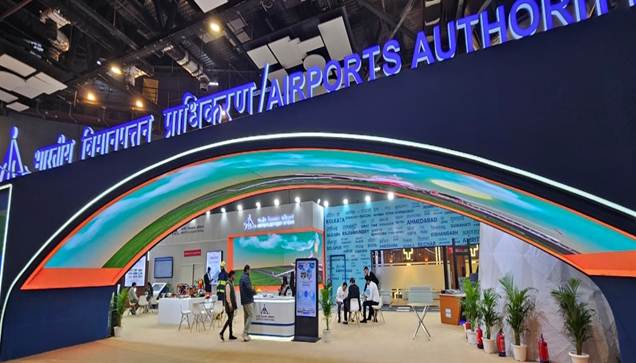 The National Capital Region Transport Corporation (NCRTC) has introduced the ‘Solar on Track’ project at its Namo Bharat Depot in Duhai. This marks India’s first instance of solar panels installed directly on rapid rail or metro tracks.
The National Capital Region Transport Corporation (NCRTC) has introduced the ‘Solar on Track’ project at its Namo Bharat Depot in Duhai. This marks India’s first instance of solar panels installed directly on rapid rail or metro tracks.
NCRTC said the pilot project demonstrates a new use of track space to generate clean energy sustainably. The installation includes 28 solar panels, each with a capacity of 550 Watt peak, placed along a 70-metre section. The total plant capacity stands at 15.4 kWp, expected to produce nearly 17,500 kWh of energy every year.
This generation will help reduce about 16 tonnes of carbon dioxide emissions annually.
According to NCRTC, the initiative reflects its commitment to energy efficiency and environmental responsibility. The organisation aims to achieve net-zero carbon emissions across all its facilities.
By utilizing track space for solar panels, NCRTC ensures optimal use of infrastructure while producing renewable power. The project also aligns with India’s National Solar Mission and supports the country’s clean energy transition.
NCRTC’s broader renewable energy target includes meeting 70 percent of its energy demand from sustainable sources. Under its solar policy, NCRTC plans to generate 15 MWp of in-house solar power across stations, depots, and buildings. Of this target, 5.5 MW has already been commissioned, and the Duhai system marks another step forward.
The corporation emphasized that ‘Solar on Track’ represents its continuous innovation in energy-efficient transport operations. Alongside solar installations, NCRTC has implemented green features such as rainwater harvesting and sewage treatment plants. It also employs regenerative braking systems in Namo Bharat trains, converting kinetic energy into electricity.
These measures together aim to minimise the carbon footprint of NCRTC’s high-speed rail operations. Through this initiative, NCRTC intends to set new sustainability benchmarks in India’s urban transit ecosystem. The corporation remains committed to promoting renewable energy and fostering a greener, cleaner National Capital Region.
Categories
- Business
- Business & Economy
- Corporate India
- Editor's Pick
- Education & Career
- Event More News
- Feature News
- Featured
- Giving Back
- Governance
- Governance
- Guest Columns
- Headlines
- Health
- Health & Fitness
- Healthcare
- Infrastructure and Real Estate
- Interviews
- Ministries
- Mixed Bag
- Newsbeat
- Popular News
- Product Launch
- Recent News
- Science & Technology
- Solar Power
- Sports
- Stories
- Tech
- Technology
- Techonology
- Travel
- Trending
- Trending News
- Videozone
- World





